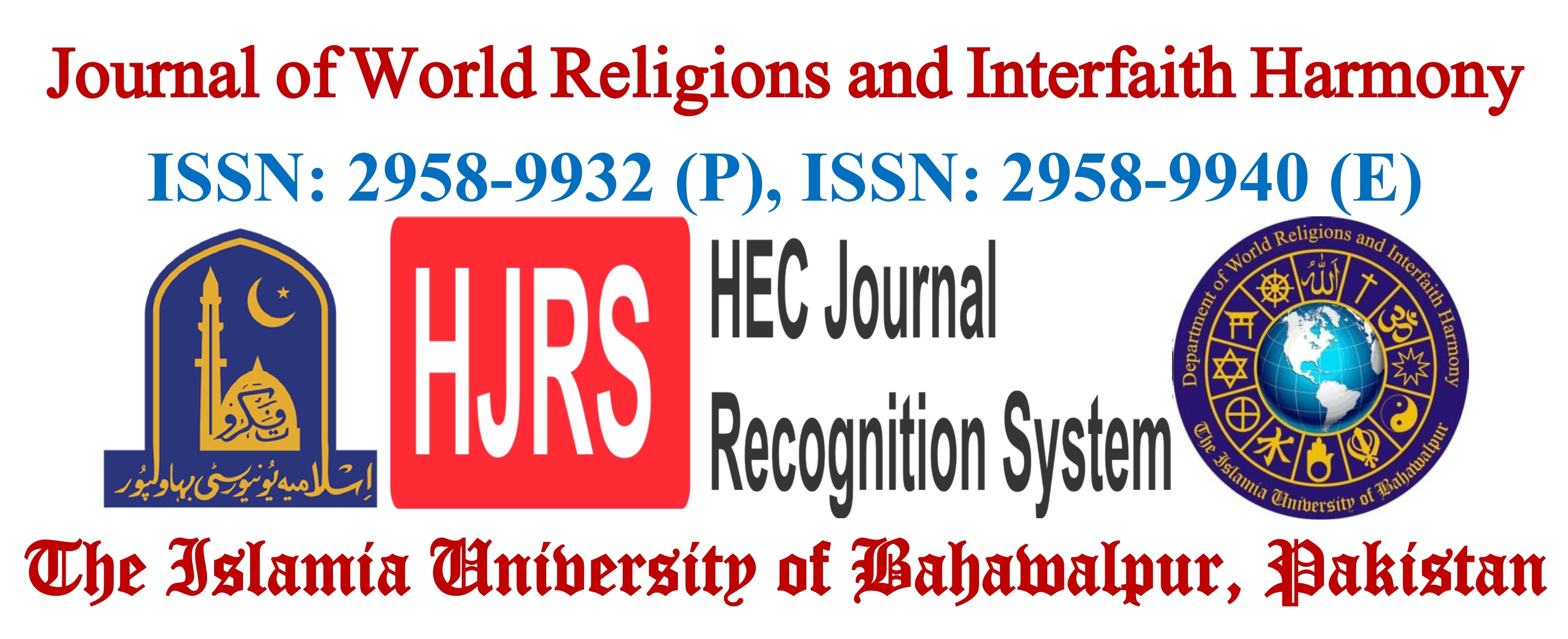Foundational Sources of Western Thought and Civilization: An Historic Exploration from the Islamic Perspective
Keywords:
Keywords: Foundational sources, Western civilization and Thought, Islamic perspective, explorationAbstract
The contemporary era is considered the most established period of human intellectual history, an age of culmination of human thought, civilization, and philosophy. The diverse theories, unique concepts and innovative ideas have reached their zenith with the intense competition of thought and civilization. In such a competitive scenario, Islamic and Western civilizations have acquired special attention, role, and status in the global sociopolitical context. Every civilization has some special features and elements which make it distinct from others. This study will deliberate the foundational sources of western thought and civilization regarding its historic exploration from within the Islamic context. A historic and analytical research methodology has been adopted for a better understanding of western and Islamic thoughts by comparing different aspects of both perceptions. It is perceived that Western civilization is a mixture of Greco-Roman Civilization including tenets from Judeo-Christian sources which evolved through centuries to reach its current position while the Islamic civilization has revealed footings with a socio-religious and religio-political rich history. Therefore, the impact and status of the two civilizations are different from each other due to distinct epistemological considerations.
Downloads
Published
How to Cite
Issue
Section
License
Copyright (c) 2024 Dr. Riaz Ahmad Saeed and Dr. Sabah Naz

This work is licensed under a Creative Commons Attribution-NonCommercial 4.0 International License.






